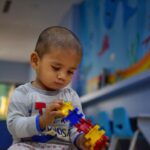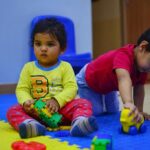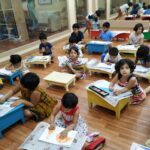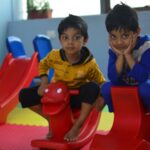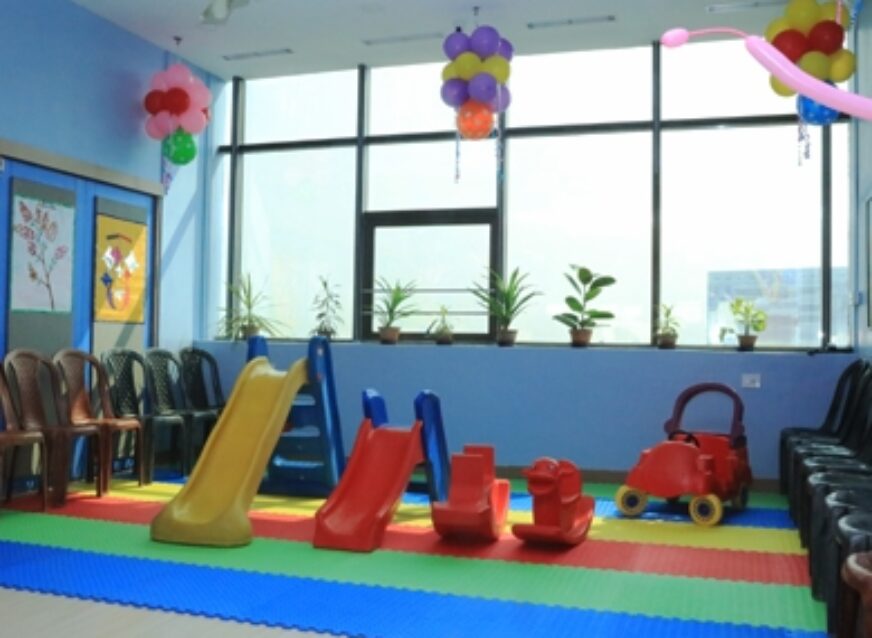
Preparedness of pre-schools and day-care centres in reopening the centres
This re-opening is NOT usual – it is unlike resuming classes after a summer or winter break. There are NO easy guidelines to guide us during this changed scenario; NO easy protocol that we can follow to stay healthy and safe. However, we are all stepping towards normalcy – a state that makes us a little more certain about life. We have made space for mask in our pouches and sanitiser bottles in our bags; and now we are ready to give our children the company and community they deserve.
How do we make sure that our pre-schools and day-care centres are all equipped to re-start? Apart from the mandatory sanitising and safety procedures, what else should be part of the preparation process? What should be the focus to ensure healthy child development? These are few among the many questions that pop into our mind. Below are few check points to prepare for re-opening.
- Infrastructure and Operations
Daily hygiene and health practices (cleaning and use of disinfectants) and safety measures in preparation and administration of meals (maintaining safe distance and NO sharing of food and utensils) should be non-negotiable. Protocol of managing a sick child or staff member and minimizing contamination risks are to be strictly followed.
- Staff Training and Support
Staff who work with children must go through small counselling sessions which should talk about children’s mental health and psychosocial impact of pandemic on children. Additionally, adults and teachers must be aware of age-related behavioural and cognitive developments in children and ways to provide support. They should also know when to seek professional guidance.
- Slow and Safe Environment
Most children will be unsettled and behaviour challenges should be expected. Adults should be trained to identify socio-emotional needs of children and ways to meet them. Fewer number of lessons can be planned at the beginning. Taking it slow would allow children to settle down comfortably. Children should feel safe in the space – mistakes should be accepted. Adults should be facilitators; in other words, their authority must not inhibit children from expressing themselves.
- Grace and Courtesy
One of the foremost lessons in Montessori pedagogy is offering grace and treating others with courtesy. Social behaviour is not taught through one-way lessons but is incorporated in everyday routine. Simple activities should be planned to model grace and polite behaviour. For example, when a child arrives in the morning, the adult in-charge gets down to the child’s level, makes an eye-contact and greets the child with a smile.
- Community and Inter-dependence
More opportunities must be given for group activities and enjoyment. Expectations can be modified in the classroom – playing games and singing songs can be part of daily sessions. Group discussions can be used to promote children to speak and participate in the class. For example, during circle time, a topic can be initiated where the adult and children all get a turn to share their experiences one by one.
- Parent Platform
Parents should be informed about the measures in place and asked to cooperate by reporting any cases of infection in the family. A checklist of “staying at home if unwell” should be shared with parents using various ways (posters, apps, emails and texts). A strong communication platform should be in place to engage with parents regularly. Parents should be encouraged to share their needs and anxieties.
- Educator Happiness
The changes and additional requirements can be overwhelming for teachers and adults in the system. If primary support providers are tired and weary, it will have a negative impact on children. Every child-care centre should have an ongoing mechanism of providing support for mental well-being of teachers and staff members. A teacher nourishes the soul of a child for a lifetime; it is crucial we take care of happiness of adults and teachers who touch lives of children every day.
“Though there will be challenges, young children are highly resilient and adaptive; and with clear and consistent instructions and a nurturing environment, will be able to adjust and thrive in the new schooling environment.” – UNICEF






